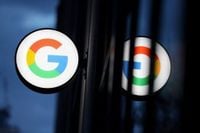In a significant ruling on April 17, 2025, a federal judge determined that Alphabet Inc., the parent company of Google, has engaged in anti-competitive practices that have allowed it to dominate the online advertising market. U.S. District Judge Leonie Brinkema, presiding in Alexandria, Virginia, found that Google has "willfully acquired and maintained monopoly power" in the markets for publisher ad servers and ad exchanges, which are crucial components of the digital advertising ecosystem.
This ruling comes in the wake of a lawsuit brought by the U.S. Department of Justice (DOJ), which argued that Google's dominance has harmed both advertisers and content creators. The DOJ contends that Google's monopolistic behavior has stifled competition and innovation in the digital advertising space.
The case, often referred to as the "DoubleClick trial," traces back to Google's acquisition of the digital advertising firm DoubleClick for $3.1 billion in 2008. This purchase has been scrutinized as a pivotal moment that bolstered Google's control over online advertising technologies.
Judge Brinkema's ruling indicated that while the DOJ failed to prove a separate claim regarding Google's monopoly in advertiser ad networks, the evidence against its publisher ad server and ad exchange operations was compelling. Brinkema noted that these platforms serve as intermediaries between buyers and sellers, and Google's control over them has significantly affected market dynamics.
In response to the ruling, Lee-Anne Mulholland, Google’s Vice President of Regulatory Affairs, stated that the company plans to appeal the decision. She remarked, "We won half of this case and we will appeal the other half," insisting that publishers have multiple options and choose Google due to the effectiveness and affordability of its ad tech tools.
The ruling has had immediate repercussions on the stock market. On the day of the announcement, shares of Google fell approximately 2.1%, reflecting investor concerns over the potential ramifications of the ruling. In contrast, shares of competing digital advertising firms, such as Trade Desk and Criteo, saw gains, with Trade Desk rising by 2.9% and Criteo advancing by 3.9%.
As part of the ruling, the DOJ has indicated that it will seek to compel Google to divest its Google Ad Manager, which encompasses the publisher ad server and ad exchange. This would mark a significant shift in Google's business operations and could pave the way for increased competition in the digital advertising sector.
Additionally, Judge Amit Mehta, who ruled last year that Google illegally maintained a monopoly over online search services, is currently deliberating on potential remedies, including the possibility of forcing Google to sell its Chrome browser. This adds another layer of complexity to Google's legal challenges, as it faces scrutiny from multiple fronts.
The DOJ's request for Google to sell its Chrome browser and other measures to curb its dominance in online search services is set to be addressed in a separate trial scheduled for next week. Google has previously considered divesting its ad exchange to satisfy European antitrust regulators, indicating the company's ongoing struggle to navigate a complex regulatory landscape.
The implications of Judge Brinkema's ruling extend beyond just Google's advertising practices; they signal a growing trend among U.S. regulators to take a harder stance on large tech companies perceived to be abusing their market power. The outcome of this case may influence future regulatory actions against other technology giants.
As the landscape of digital advertising continues to evolve, the decisions made by the courts and regulatory bodies will play a crucial role in shaping the future of competition in this space. With digital ad spending increasingly shifting towards apps and streaming services, the stakes are high for all players involved.
The current ruling is part of a larger narrative about the need for fair competition in the tech industry, where a handful of companies have amassed significant power. As the trial progresses, the focus will remain on how these legal battles will impact the market dynamics and the overall landscape of digital advertising.
In the coming months, analysts and industry observers will be closely watching how Google responds to these legal challenges and what steps it will take to comply with potential court orders. The outcome of these proceedings could redefine the rules of engagement in the digital advertising market, with far-reaching consequences for advertisers, content creators, and consumers alike.
As the tech giant navigates this tumultuous period, the question remains: how will it adapt to an environment where regulatory scrutiny is intensifying and competition is becoming fiercer? The answers may not only shape the future of Google but also set precedents for how technology companies operate in an increasingly regulated world.





